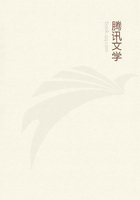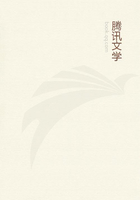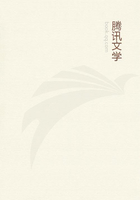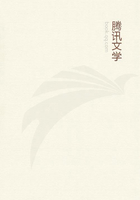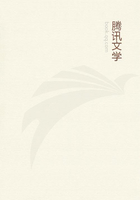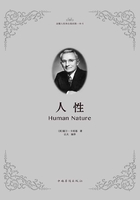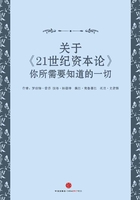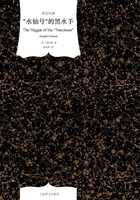I. Thought is an attribute of God, or God is a thinking thing.
Proof--Particular thoughts, or this and that thought, are modes which, in a certain conditioned manner, express the nature of God (Pt. i., Prop. xxv., Cor.). God therefore possesses the attribute (Pt. i., Def. v.) of which the concept is involved in all particular thoughts, which latter are conceived thereby.
Thought, therefore, is one of the infinite attributes of God, which express God's eternal and infinite essence (Pt. i., Def. vi.). In other words, God is a thinking thing. Q.E.D.
*****Note--This proposition is also evident from the fact, that we are able to conceive an infinite thinking being. For, in proportion as a thinking being is conceived as thinking more thoughts, so is it conceived as containing more reality or perfection. Therefore a being, which can think an infinite number of things in an infinite number of ways, is, necessarily, in respect of thinking, infinite. As, therefore, from the consideration of thought alone, we conceive an infinite being, thought is necessarily (Pt. i., Deff. iv. and vi.) one of the infinite attributes of God, as we were desirous of showing.
II. Extension is an attribute of God, or God is an extended thing.
Proof--The proof of this proposition is similar to that of the last.
III. In God there is necessarily the idea not only of his essence, but also of all things which necessarily follow from his essence.
Proof--God (by the first Prop. of this Part) can think an infinite number of things in infinite ways, or (what is the same thing, by Prop. xvi., Part i.) can form the idea of his essence, and of all things which necessarily follow therefrom. Now all that is in the power of God necessarily is (Pt. i., Prop. xxxv.). Therefore, such an idea as we are considering necessarily is, and in God alone. Q.E.D. (Part i., Prop. xv.)
*****Note--The multitude understand by the power of God the free will of God, and the right over all things that exist, which latter are accordingly generally considered as contingent. For it is said that God has the power to destroy all things, and to reduce them to nothing. Further, the power of God is very often likened to the power of kings. But this doctrine we have refuted (Pt. i., Prop. xxxii., Cors. i. and ii.), and we have shown (Part i., Prop. xvi.) that God acts by the same necessity, as that by which he understands himself; in other words, as it follows from the necessity of the divine nature (as all admit), that God understands himself, so also does it follow by the same necessity, that God performs infinite acts in infinite ways. We further showed (Part i., Prop. xxxiv.), that God's power is identical with God's essence in action; therefore it is as impossible for us to conceive God as not acting, as to conceive him as non-existent. If we might pursue the subject further, I could point out, that the power which is commonly attributed to God is not only human (as showing that God is conceived by the multitude as a man, or in the likeness of a man), but involves a negation of power. However, I am unwilling to go over the same ground so often. I would only beg the reader again and again, to turn over frequently in his mind what I have said in Part i. from Prop. xvi. to the end. No one will be able to follow my meaning, unless he is scrupulously careful not to confound the power of God with the human power and right of kings.
IV. The idea of God, from which an infinite number of things follow in infinite ways, can only be one.
Proof--Infinite intellect comprehends nothing save the attributes of God and his modifications (Part i., Prop. xxx.).
Now God is one (Part i., Prop. xiv., Cor.). Therefore the idea of God, wherefrom an infinite number of things follow in infinite ways, can only be one. Q.E.D.
V. The actual being of ideas owns God as its cause, only in so far as he is considered as a thinking thing, not in so far as he is unfolded in any other attribute; that is, the ideas both of the attributes of God and of particular things do not own as their efficient cause their objects (ideata) or the things perceived, but God himself in so far as he is a thinking thing.
Proof--This proposition is evident from Prop. iii. of this Part. We there drew the conclusion, that God can form the idea of his essence, and of all things which follow necessarily therefrom, solely because he is a thinking thing, and not because he is the object of his own idea. Wherefore the actual being of ideas owns for cause God, in so far as he is a thinking thing.
It may be differently proved as follows: the actual being of ideas is (obviously) a mode of thought, that is (Part i., Prop. xxv., Cor.) a mode which expresses in a certain manner the nature of God, in so far as he is a thinking thing, and therefore (Part i., Prop. x.) involves the conception of no other attribute of God, and consequently (by Part i., Ax. iv.) is not the effect of any attribute save thought. Therefore the actual being of ideas owns God as its cause, in so far as he is considered as a thinking thing, &c. Q.E.D.
VI. The modes of any given attribute are caused by God, in so far as he is considered through the attribute of which they are modes, and not in so far as he is considered through any other attribute.
Proof--Each attribute is conceived through itself, without any other part (Part i., Prop. x.); wherefore the modes of each attribute involve the conception of that attribute, but not of any other. Thus (Part i., Ax. iv.) they are caused by God, only in so far as he is considered through the attribute whose modes they are, and not in so far as he is considered through any other. Q.E.D.
Corollary--Hence the actual being of things, which are not modes of thought, does not follow from the divine nature, because that nature has prior knowledge of the things. Things represented in ideas follow, and are derived from their particular attribute, in the same manner, and with the same necessity as ideas follow (according to what we have shown) from the attribute of thought.

